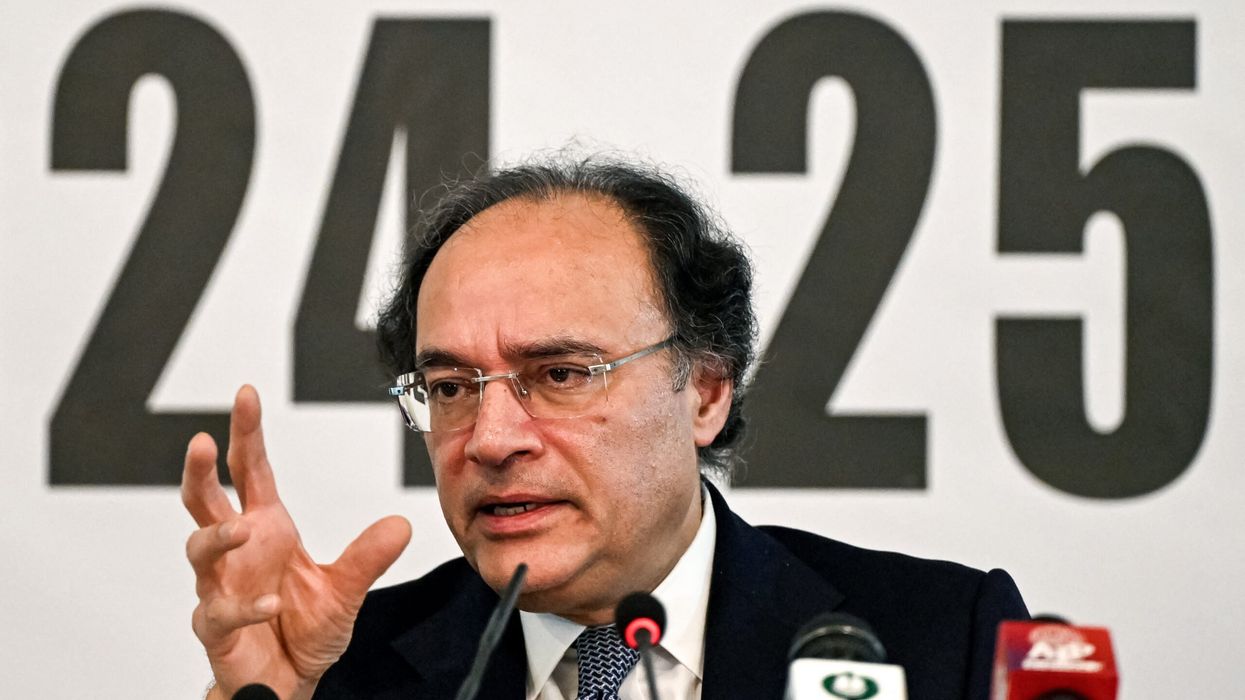PAKISTAN announced last Thursday (26) that it would face “transitional pain” after the International Monetary Fund (IMF) agreed to a new $7 billion (£5.26bn) relief package to support its struggling economy.
Although the south Asian nation’s economy has stabilised since it came close to defaulting last summer, it is dependent on IMF bailouts and loans from friendly countries to service its huge debt, which swallows up half of its annual revenues.
“There will be transitional pain, but if we are to make it the last programme, then we have to carry out structural reforms,” finance minister Muhammad Aurangzeb told local broadcaster Geo News.
The IMF said in a statement it would issue an “immediate disbursement” of $1bn (£.75bn).
“This past year has seen a very welcome return to economic stability in Pakistan,” IMF Pakistan mission chief Nathan Porter told reporters last Thursday.
“The challenge confronting Pakistan now is to move beyond this renewed sense of stability and towards stronger and sustained growth, with its benefits shared more broadly and evenly across society,” he added.
Pakistan, in July, agreed to the deal – its 24th IMF payout since 1958 – in exchange for unpopular reforms, including cutting back on power subsidies and widening its chronically low tax base.
Speaking on the sidelines of the United Nations General Assembly in New York last Wednesday (25), prime minister Shehbaz Sharif said the deal came through, thanks to the “tremendous support” of Saudi Arabia, China and the United Arab Emirates.
“In the final phase (of negotiations), the IMF’s conditions were related to China. The way the Chinese government supported and strengthened us during this time is something I am truly grateful for,” he told reporters shortly before the deal was announced.
Last month, Aurangzeb had said Pakistan was negotiating a $12bn (£9.03bn) loan reprofiling from bilateral lenders.
The amount comprised $5bn (£3.76bn) from Saudi Arabia, $4bn (£30.01bn) from China and $3bn (£2.25bn) from the UAE for a three- to five-year period.
Porter said all three countries had “provided significant financing assurances,” beyond these commitments to rolling over the $12bn (£9.03bn) in existing loans.
Reacting to the news, Pakistan’s stock exchange briefly reached a new record high before losing ground in later trade.
Kaiser Bengali, a Pakistani economist, said the deal “will help us pay back our immediate debts, but nothing more. The only economic reforms that we are required to implement is more taxes. There is no progress on r e d u c i n g government expenditures,” he told AFP.
At the end of 2023, Pakistan – long locked in a cycle of overlapping political and economic crises – had amassed a total debt of more than $250bn (£188.11bn), or 74 per cent of GDP, according to the IMF.
About 40 per cent of its debt is owed to external creditors in foreign currencies. Its biggest foreign creditor is China and Chinese commercial banks, at just under $30bn (£22.57bn), followed by the World Bank at $20bn (£15.05bn), according to the report.
Last year the country came to the brink of default as the economy shrivelled amid political chaos following catastrophic 2022 monsoon floods.
It was saved by last-minute loans from friendly countries as well as an IMF rescue package.
Islamabad wrangled for months with IMF officials to unlock the latest loan, which came on the condition of reforms including hiking household bills to remedy a permanently crisisstricken energy sector and raising pitiful tax takings.
In a nation of more than 240 million people where most jobs are in the informal sector, only 5.2 million filed income tax returns in 2022.




